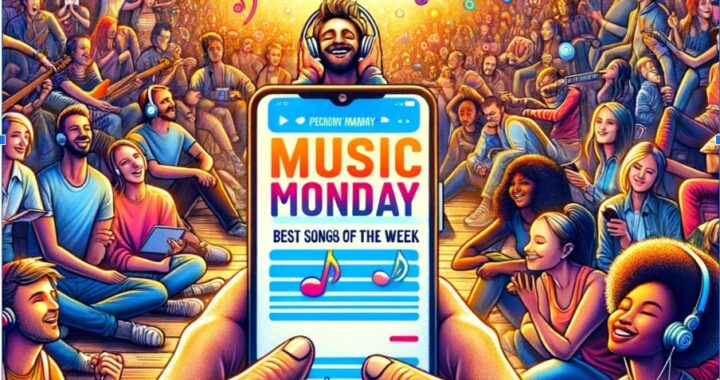Feature: The Influence of Music on Learning and Student Development
4 min read
Did you know that music has the potential to enhance cognitive processes, improve emotional well-being, and create a supportive learning environment? Well, it does, although it’s not enough to just play any music, so we’re here to save the day. Let’s find out which genres are suitable for specific purposes and whether they really make a difference. Who knows, maybe by the end of this text, you will put EduBirdie reviews on the back burner and start writing essays yourself. Let’s find out.
Influence of Different Genres
No matter how trite it may sound, favorite music has the most positive effect on a person. For some, it’s a pop or rap song they listen to daily. The feeling of familiarity has a calming effect on the brain and removes stressors that could distract. For some, this sounds like a nightmare, as how can you sit still when you want to sing along? They think it’s easier to choose melodies without words, often calm classical music. Some don’t mind listening to metal, motivated to finish those math examples as soon as possible. In short, opinions differ, but we’re armed with statistics based on the majority.
Classical Music
The benefits of this are shouted about everywhere. Classical listening even comes up in pregnancy advice, hinting it’ll develop the child’s mind better. Not sure about that, but several studies have confirmed that you’ll be more focused on the task at hand. Students who listened to classical music during a lecture learned the material better than those who did not. Have you heard of the “The Mozart Effect”? In fact, it applies to any composition in the genre; there is no need to turn on Symphony No. 40 exclusively.
Jazz
Let’s move on to the reason for many disputes and the misconception that it’s about “who will outplay whom.” Jazz is about improvisation, and interestingly, that’s what it stimulates in students. Listening stimulates critical thinking, but that’s not all. Participants in the experiment felt a rise in mood and a stress reduction. Isn’t that what you need during tests? It is believed that jazz also increases concentration, especially when you choose the best version – wordless or worded.
Pop
It seems like you won’t be able to do anything but dance and karaoke, but you’ll actually get a boost of motivation. Pop music’s energetic and rhythmic melodies lift your mood and increase your energy, contributing to more productive learning, especially during routine tasks.
The impact is so significant that Harvard created a separate course dedicated to one of the pop icons, Taylor Swift. They will focus on fan culture, celebrity culture, political and social points in songs, and study related literature. Earlier, the Boston Berklee College of Music became interested in the singer’s pop contribution, studying Swift’s songwriting technique. So you can double the benefits by not only listening but also researching.
Rock Music
Intense tasks require intense sound, and we don’t make the rules. The energy of rock stimulates the brain’s center, affecting arousal and, as a result, concentration. Besides, it’s an excellent way to fight sleep if you’re tired of researching edubirdie.com reviewed by writingpapersucks or studying hard (both are fine). But when you need more peace, consider ballads or acoustic versions of songs. That’s especially useful to reduce stress levels during breaks or before important exams.
Substituting Music During Study
If the above is not your option, we have a few more options to make learning more enjoyable and manageable. Let’s look at the alternatives in detail:
- Nature sounds. Whispering leaves, birdsong, and the sound of streams create a tranquil atmosphere that helps you relax and relieve stress. Many people prefer the sound of the surf. Conveniently, nowadays, you don’t need to go outside with your laptop to hear it; you just need to turn on a video.
- White noise. A perfect option for ADHD, reducing distractions and facilitating learning. It is a type of sound where all frequencies of the auditory spectrum are presented with equal intensity. They have the same amplitudes, making it a uniform and static sound.
- Mantras and sounds of silence. Sounds accompanying meditation exercises help cope with stress and improve mental focus.
- Meditation music. Compositions that include sounds of nature or melodic instruments are about deep relaxation and concentration. If more than classical is needed, consider this.
- ASMR videos. Such sounds are also an option, but only if they don’t make you fall asleep.
Try different variants to find yours. Even if a particular genre is the ceiling, the next one may be even better. Each student has their characteristics and needs, which is the most important thing to remember when choosing. Add some sounds to your nuts-and-bolts studying session and see what a game-changer it is.
::: RenownedForSound.com’s Editor and Founder –
Interviewing and reviewing the best in new music and globally recognized artists is his passion.
Over the years he has been lucky enough to review thousands of music releases and concerts and interview artists ranging from top selling superstars like 27-time Grammy Award winner Alison Krauss, Boyz II Men, Roxette, Cyndi Lauper, Lisa Loeb and iconic Eagles front man/songwriter, Glenn Frey through to more recent successes including Newton Faulkner, Janelle Monae and Caro Emerald.
Brendon manages and coordinates the amazing team of writers on RenownedForSound.com who are based in the UK, the U.S and Australia.



